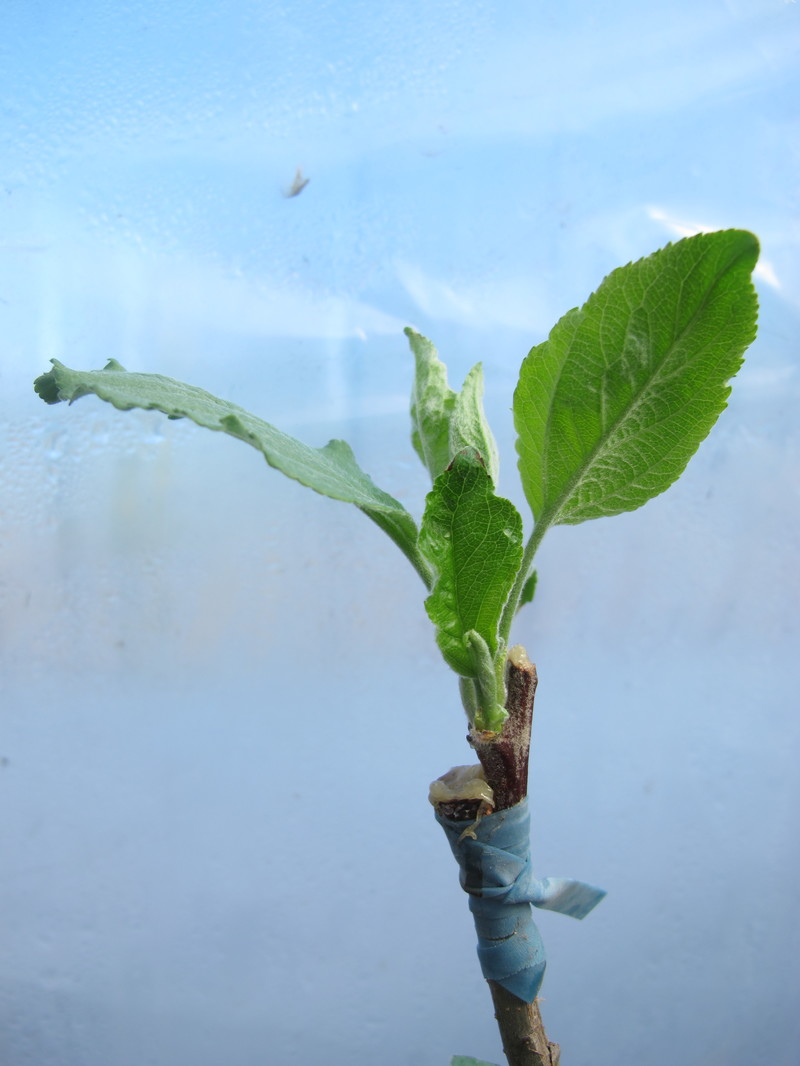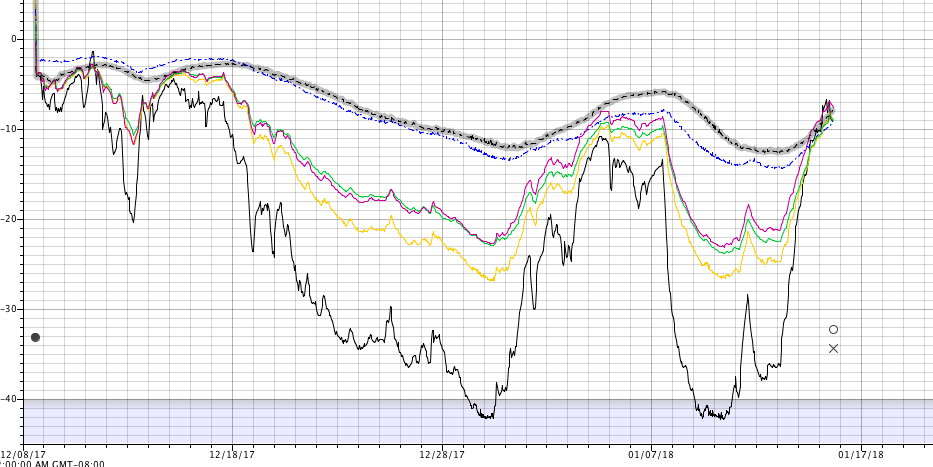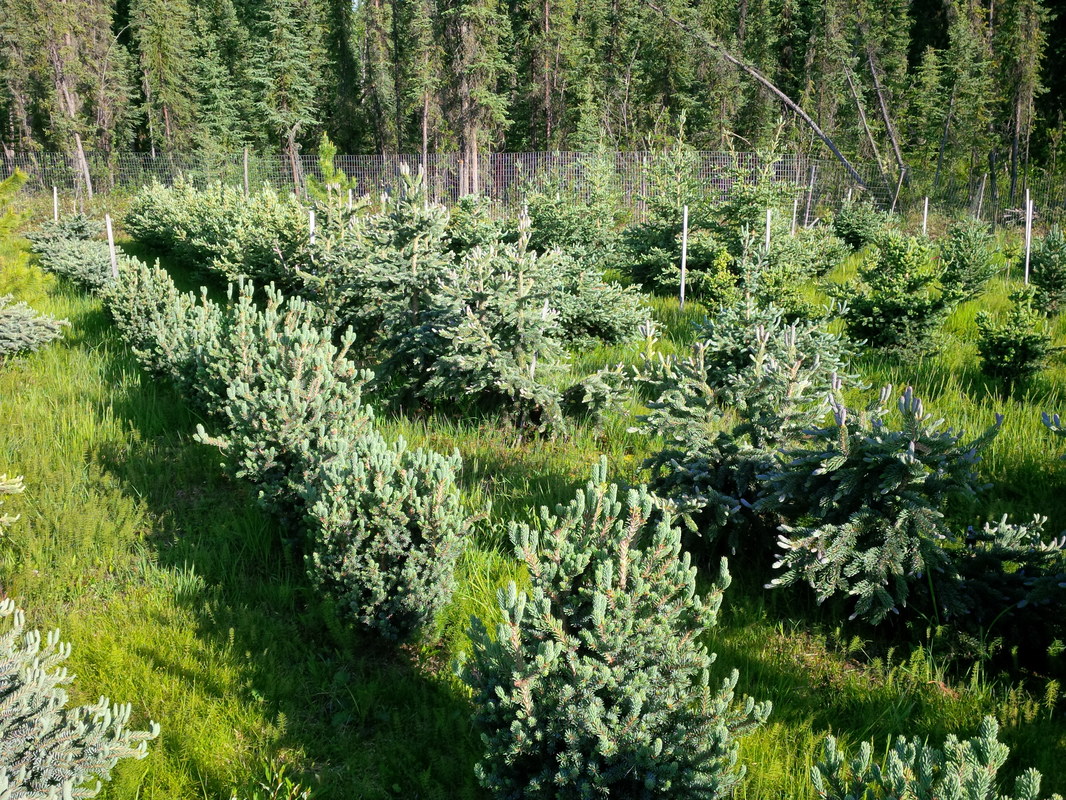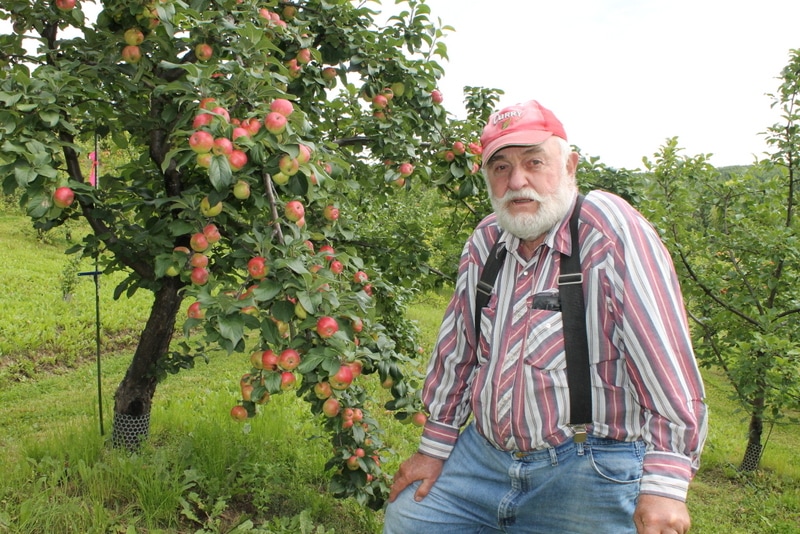|
To use locally-derived lines of high-value ornamental conifers to enhance pride of place and connection to the land.
|
|
To expand fruit production in Canada's north by supporting growers of all scales with appropriate material and technology.
|
Our missions

In tandem with fruit selection work we are exploring a variety of full and partial sheltering techniques, which we aim to keep low-cost and simple (see our current design here). We have recently added digital temperature loggers to our toolbox and are happy to report that over the winter of 2017-18 our shelters did not get colder than -25*C. Impressive, considering the number of -40*C days and nights we had! Snow and frost are large components of the shelters' impact.
|
The Klondike Apple Trials The initial aim of the fruit research, begun in 1988, was to find apple trees that would survive and produce in the Klondike. Our Ultra-Hardy collection – three rugged trees that produce small, sweet, early apples is the result of trials comprising over 300 selections. The goals have expanded beyond survivability to encompass higher-quality fruit that is suited to a variety of purposes. We continue to investigate commercially available and rare cultivars alongside a climatically selected collection of experimental apple trees and dwarf rootstocks from the University of Saskatchewan’s Plant Sciences Fruit Program. Presently about 50 fruiting cultivars are being maintained on a dozen rootstocks and a seedling program from natural crosses has produced several hundred remaining entrants to the circus. We also research the local potential for a variety of haskaps, cherries, pears, plums and grapes. Check out our Resource Page for the results of previous work.
|
Gems of the Boreal
|
In 2002 John visited Iseli nursery in Oregon, the crème de la crème in the ornamental conifer trade, and was awestruck. He came away inspired to generate his own unique lines of trees that would thrive in the Yukon. The source would be brooms from the Yukon wilds. Brooms are caused by a number of agents and are notoriously variable in form, vigor and inherent stability. Cuttings are grafted onto seedlings grown here from local seed, and grown out for a minimum trial period of ten years. During this time we test performance under different conditions, assessing characteristics like form, consistency, dwarfing and colour. Stable, pleasing selections are chosen for propagation and marketing.
|
Towards Local Landscaping
Northern communities are currently very limited when it comes to landscaping material. We envision trading southern Canada's standard stock for plants that represents the diversity and beauty of our own forests – fostering strong northern identities, pride of place and connection to the land. Our cold climate and off-grid location notwithstanding, our collection currently consists of a hundred or so selections from twenty species and five genera – and counting. We aim to encourage other growers to take up the challenge and join us in transforming the Yukon’s landscaping industry into a homegrown affair that celebrates the wild beauty of our land. If you know of a live (green) broom or interesting tree that you would like to bring into cultivation, we’d be happy to help – broom collection season runs from September to April.
|
Clair Lammers was a dedicated and passionate fruit tree pioneer with a successful orchard near Fairbanks, Alaska. He was a key early mentor of John's, providing many of his first trees in addition to encouragement and advice. Photo courtesy of Nancy Tarnai.
|
A Community of Collaborators
Collaboration has always been integral to the work at Klondike Valley Nursery. We have had the pleasure of exchanging plant material, stories and advice with mentors and colleagues in Alaska, Alberta, Saskatchewan, Ontario, and Russia as well as in the Yukon. We have had a particularly helpful relationship with the University of Saskatchewan's Plant Sciences Department, acting as a sort of sub-arctic test site for apples, haskaps and cherries. In another vein, we couldn't do what we do without countless volunteers over the years, and more recently, interns. If you would like to partner with us, please get in touch!
|


